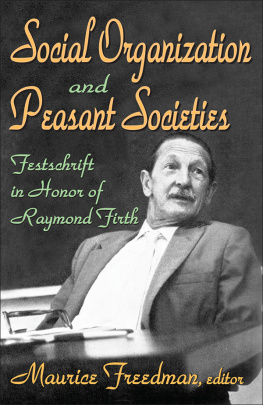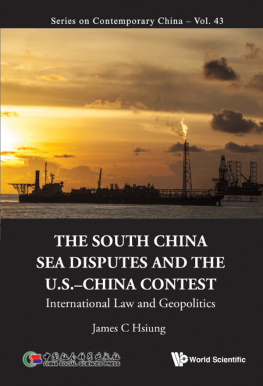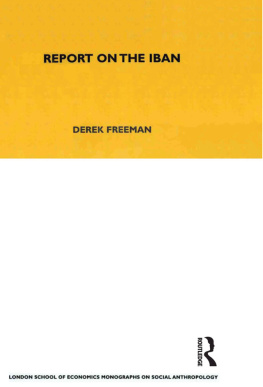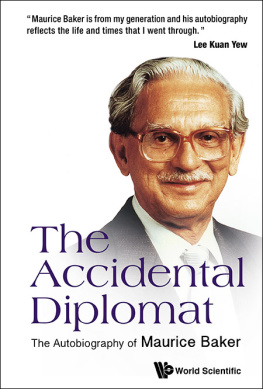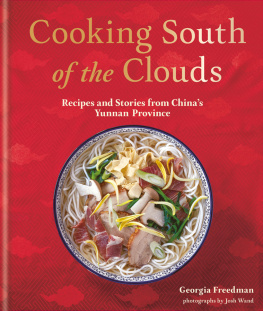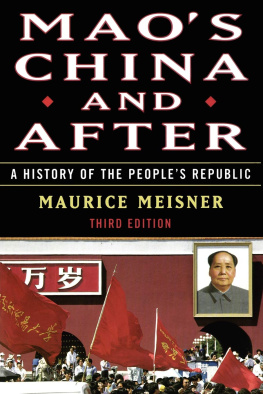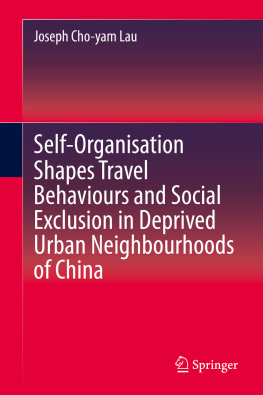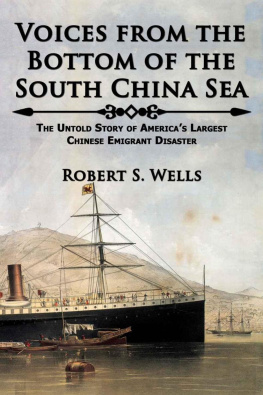First published 1958 by THE ATHLONE PRESS
Published 2020 by Routledge
2 Park Square, Milton Park, Abingdon, Oxon OX14 4RN
605 Third Avenue, New York, NY 10017
Routledge is an imprint of the Taylor & Francis Group, an informa business
Copyright Maurice Freedman, 1958
All rights reserved. No part of this book may be reprinted or reproduced or utilised in any form or by any electronic, mechanical, or other means, now known or hereafter invented, including photocopying and recording, or in any information storage or retrieval system, without permission in writing from the publishers.
Notice:
Product or corporate names may be trademarks or registered trademarks, and are used only for identification and explanation without intent to infringe.
ISBN13: 978-1-8452-0008-4 (hbk)
Preface
This essay is the work of a social anthropologist but it is not based upon field work. It is concerned with Chinese matters but it is not written by a sinologue. To explain why I have ventured to write a book about China I must go back to a subject which I have studied as a field anthropologist. In the years 1949 and 1950, under the auspices of the Colonial Social Science Research Council, I carried out a study of family and marriage among the Chinese living in the Colony of Singapore. While this study was in progress and during the years which followed I pondered the significance of what I gathered both from my Singapore informants and from my reading of the works in European languages on the nature of Chinese society in the two provinces of Fukien and Kwangtung. To begin with I was interested in these provinces as the homeland of the Chinese in South-east Asia, but I came gradually to see in the material I was able to collect problems of a general sociological importance. If political and academic circumstances had been in my favour I should have gone to south-eastern China to study at first hand the questions which engaged my attention, but as matters have turned out I have seen no more of my field than glimpses of Kwangtung seized during a flying visit to Hong Kong and Macao in 1955.
The main published results of this investigation are embodied in Colonial Law and Chinese Society, Journal of the Royal Anthropological Society, vol. 8o, 1950 (published 1952), and Chinese Family and Marriage in Singapore, London, 1957.
I have set out in this essay my reflections on certain aspects of southeastern Chinese society during the last hundred and fifty years. What I write cannot amount to a complete study, but it may help to interpret a kind of social complex which has much interested anthropologists in recent years. Unilineal kinship organization in a differentiated society and a centralized political system forms the main theme of the essav.
My attention was attracted to Fukien and Kwangtung because this region of China has specialized not only in large-scale unilineal organization but also in sending people overseas. Although I am concerned here with China itself, I hope that some of the matters I discuss will be of use to students of overseas Chinese society; for this is a field which, while of great interest in its own right, tends to grow in importance the longer China remains inaccessible.
It is possible that Chinese rural society will soon have changed beyond recognition. If China opens its doors to field investigation before this happens, we shall have the fruits of first-hand work to set against the ruminations of armchair anthropology. Otherwise it is obvious that the conclusions of this essay must be tentative. They may, however, be improved upon and tested whether or not living China remains a closed book; for there are still literary sources for the study of Chinese society in the past which, as I understand the position, have not yet been fully exploited. The gazetteers and other works dealing with conditions in Fukien and Kwangtung might tell us much that we need to know. Some years ago Dr. Hu Hsien-chin whetted our appetites by bringing together literary evidence on lineage organization in China as a whole. May we hope that the detailed social history of particular areas of China will in the future add to the body of comparative sociology? Anthropologists who respect, enjoy, and use the fruits of historical sociology would certainly not be slow to welcome reconstructions and analyses of Chinas cast.
The Common Descent Group in China and its Functions, Viking Fund Publications in Anthropology Number io, New York, 1948. How heavily I am indebted to Miss Hus work will be apparent in this essay.
There is another way in which some of the speculations about southeastern China can be tested. In the New Territories of Hong Kong both historical research and anthropological field work are possible. From my own brief experience of this area and from the discussions I have had with Miss Barbara Ward, who knows it well, I should say that anthropologists could answer certain important questions about south-eastern China from a study of the small part of it whirh is under British rule.
I have tried to remedy the sinological shortcomings of this essay in only one major respect. Two works in Chinese struck me as being especially likely to help me with material on south-eastern China and these, with financial aid from the Geographical and Anthropological Research Division, London School of Economics, which I gratefully acknowledge, I have had translated. They have proved extremely useful. Apart from these two sources, all the published material I have used has been taken from works written in European languages. Some of this material is avowedly sociological, but a great part of it derives from a very heterogeneous collection of books and articles. In trying to find pieces to fit together to make a convincing picture of rural society in Fukien and Kwangtung, I have had to use whatever materials I could lay my hands on. When we know so little about a wide area over a long period of time, we must be dismayed by the jumps in space and time which an attempt at a systematic account entails. The provinces of Fukien and Kwangtung cover an area of some 150,000 square miles and have been inhabited by a population which has probably varied around the figure of fifty millions during the last century. Within this range of time and distance the facts about rural life are very thinly spread.
They are: Lin Yueh-hwa, An Enquiry into the Chinese Lineage-Village from the Viewpoint of Anthropology, She Hui Hsiieh Chieh, No. 9, 1936; and Liu Hsing-tang, The Structure of Kinship Groups in Fukien, Shih Huo, vol. 4, no. 8, 1936. In connexion with the work done on these translations I wish to thank Mrs. S. van der Sprenkel and Mrs. Y. C. Liu of the School of Oriental and African Studies, London University.
The tenuousness of the data, nowever, wnue aeieaung any approacn to a detailed social history of rural south-eastern China, does not prevent us, at least in principle, from building up a model of certain structures which were apparently common in the area and seemingly persistent over a considerable period of time. In the last section of this essay I discuss the validity and uses of the model of the south-eastern Chinese localized lineage which I try to construct. At the outset I must make it plain that, while I attempt to remain faithful to the facts I have been able to adduce, the picture I gradually build up inevitably departs from reality by subsuming many variations under generalized heads. But if my picture of the localized lineage in fact corresponds to no lineage which has ever existed in Fukien and Kwangtung, it is at least a summary of the characteristics of a great number of such lineages. From it we may draw certain conclusions and make certain predictions about real lineages.





